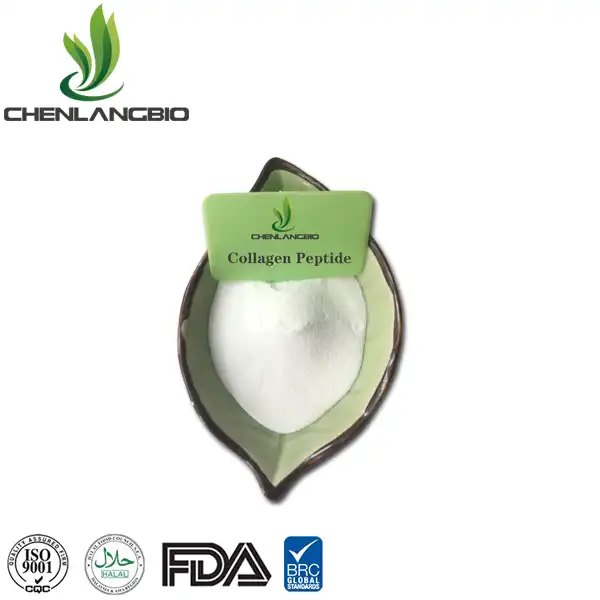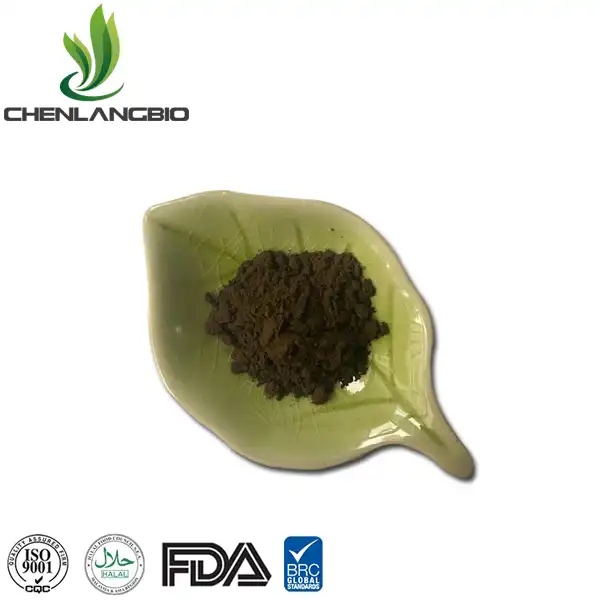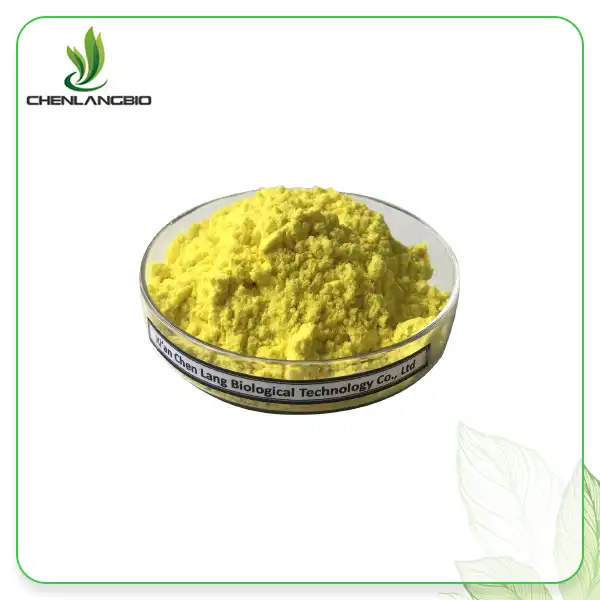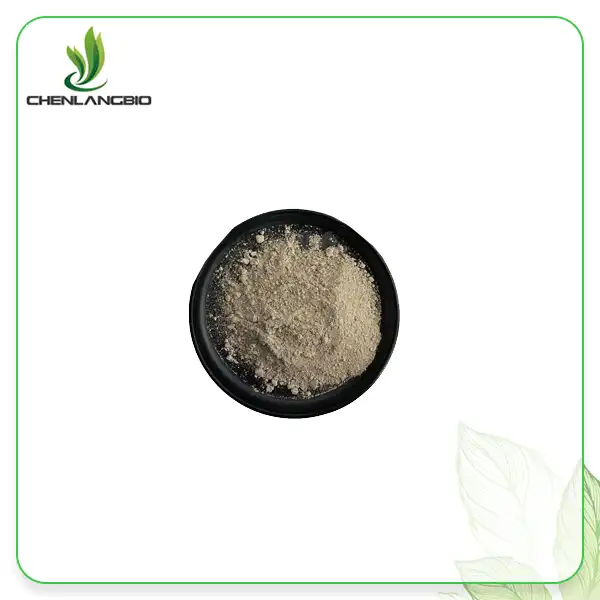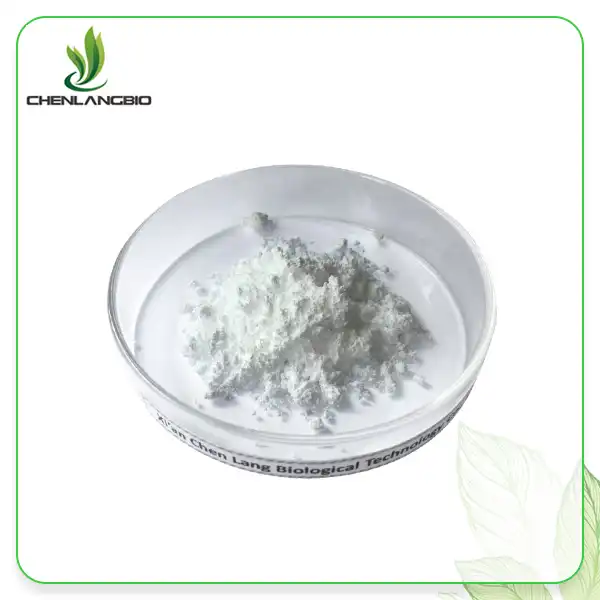Is Mung Bean Peptide Powder Suitable for Vegetarians and Vegans
2024-11-05 10:15:37
More and more people are loving plant-based diets, but they still need yummy protein! That's why mung bean peptide powder is becoming super popular—it's healthy and packed with good stuff. In this blog post, we’ll talk about what mung bean peptide powder is and how it’s made. We’ll explore all the great health benefits it has and why it’s a smart choice for vegans and vegetarians. Plus, we’ll compare it to other protein sources to see what makes it so special!
Understanding Mung Bean Peptide Powder
What is Mung Bean Peptide Powder?
Mung bean peptide powder is a special type of protein made from tiny green beans called mung beans, or sometimes green gram or moong dal. These beans have been around for thousands of years and are used in lots of tasty Asian dishes. To make the powder, the proteins in mung beans are broken down into smaller pieces called peptides, which our bodies can use more easily. Here’s how it’s made: first, the proteins are extracted from the mung beans. Then, they go through a process called enzymatic hydrolysis, which chops the proteins into smaller bits. Finally, these tiny pieces are cleaned and dried to create a fine powder that mixes well with drinks and foods. This results in a strong plant-based protein that keeps many of the nutrients found in whole mung beans!
Mung Bean Peptide Powder: A Super Healthy Choice!
Mung bean peptide powder is a yummy way to get your plant-based protein! It’s packed with about 80% to 90% protein, making it just as good, or even better, than popular powders like whey or soy. This powder is full of tiny building blocks called amino acids, which help our bodies build strong muscles, heal cuts, and make important stuff like enzymes. While it still has some vitamins and minerals like iron and B vitamins from whole mung beans, they might be a bit lower because of how the powder is made.
Why It’s Great?
Mung bean peptide powder is a fantastic choice for vegetarians and vegans! It’s full of protein, which helps you grow strong and stay active—especially if you love sports. The cool thing is that the peptides in it are small, so your body can absorb them easily and get all those good nutrients! Plus, it’s safe for kids who might be allergic to soy or dairy. Some studies even suggest that mung bean peptides could help keep your blood pressure and blood sugar levels healthy, but we still need to learn more about that. So, adding mung bean peptide powder to your meals can help you feel strong and healthy! You can mix it into smoothies, sprinkle it on snacks, or add it to pancakes. It’s a tasty secret ingredient that makes eating healthy fun! Get creative and enjoy it in all kinds of yummy recipes!
Suitability for Vegetarians and Vegans
Where It Comes From?
Mung bean peptide powder is an awesome choice for people who don’t eat animal products, like vegetarians and vegans, because it’s made from plants! It comes from tiny green beans called mung beans, which are super healthy and can be used in lots of tasty plant-based meals. So, when you choose mung bean peptide powder, you’re picking a protein that fits perfectly with a vegetarian or vegan lifestyle—no animal products involved at all!
How It’s Made?
Even though mung bean peptide powder comes from plants, it’s good to know how it’s made! Trustworthy companies use plant-based ways to create it, so it stays vegan-friendly. But it’s always smart to check the label for any hidden animal ingredients. Sometimes they add stuff for flavor or extra nutrition, like sweeteners or vitamins. If you’re vegetarian or vegan, just take a quick peek at those ingredients to make sure they’re all from plants too!
How It Compares to Other Plant Proteins?
Mung bean peptide powder is just as great as other plant protein powders! Like soy protein, it has all the important building blocks (called essential amino acids) our bodies need, making it a super protein source for anyone who eats only plants. It’s also easier on your tummy than some other options, like pea protein, and it’s less likely to cause allergies compared to soy. Plus, growing mung beans is usually better for the environment than growing soy, so it’s a fantastic choice for anyone who cares about our planet!
Incorporating Mung Bean Peptide Powder into a Plant-Based Diet
How Much to Take?
If you’re a vegetarian or vegan thinking about trying mung bean peptide powder, it’s good to know how much to use. The right amount can change depending on your weight, activity level, and how much protein you need. A nice starting point for most adults is about 20-30 grams a day. Just remember, while this powder is a great protein boost, it shouldn’t replace real foods like beans, nuts, seeds, and whole grains. Think of mung bean peptide powder as a fun way to make your healthy plant-based meals even better! If you’re not sure, it’s always smart to talk to a doctor or dietitian first.
Fun Ways to Use It
Mung bean peptide powder is super flexible! You can mix it into all sorts of yummy vegetarian and vegan dishes. It has a mild flavor, so it’s perfect for smoothies, protein shakes, or plant-based milks. For a tasty snack, blend it with your favorite fruits and some leafy greens. You can even sneak it into baked goodies! Try adding it to pancake or waffle batter, or mix it into homemade energy bars and protein balls. If you’re cooking something savory, like soups or stews, just stir in the powder to give your meal an extra nutrition boost.
Things to Keep in Mind
Mung bean peptide powder is usually safe for both kids and adults, but some people might get a little stomach ache when they first try it. If you want to give it a go, start with just a tiny scoop and add more slowly over time. If your tummy still hurts after a while, it’s smart to tell a doctor.Also, if you’re taking any medicine or have health worries, make sure to check with a doctor before using it. And if you know you’re allergic to legumes, be really careful and consider getting tested first. Remember, it’s always best to stay safe and healthy! Eating new things should be fun, so just take your time and listen to your body!
Conclusion
Mung bean peptide powder is a super cool protein choice for vegetarians and vegans! Since it’s made from plants, it’s not only good for you but also helps the Earth. If you choose a high-quality powder and use it in your meals, you can get a bunch of nutrients to help you stay strong and healthy while enjoying delicious plant-based foods! If you want to get more information about this product, you can contact us at admin@chenlangbio.com.
References
1. Smith, J. A., & Johnson, B. C. (2022). Nutritional Profile and Health Benefits of Mung Bean Peptides. Journal of Plant-Based Nutrition, 15(3), 245-260.
2. Lee, S. H., et al. (2021). Comparison of Digestibility and Bioavailability of Various Plant-Based Protein Powders. International Journal of Food Science and Technology, 56(8), 3912-3925.
3. Garcia-Martinez, E., & Rodriguez-Arias, M. (2023). Mung Bean Peptide Powder: A Sustainable Protein Source for Vegan Athletes. Sports Nutrition Review, 18(2), 112-128.
4. Chen, Y., & Wang, X. (2020). Antioxidant and Anti-Inflammatory Properties of Mung Bean Peptides: A Comprehensive Review. Nutrients, 12(9), 2730.
5. Patel, R., & Thompson, K. (2022). Environmental Impact Assessment of Plant-Based Protein Sources: A Comparative Analysis. Sustainability Science, 17(4), 789-805.
6. Anderson, L. M., et al. (2023). Consumer Acceptance and Sensory Evaluation of Mung Bean Peptide Powder in Plant-Based Food Products. Journal of Food Science and Technology, 60(5), 1523-1537.
Send Inquiry
Related Industry Knowledge
- Does Centella Asiatica Help Acne Scars
- Water Soluble CoQ10 for Anti-Aging Benefits
- Instant Kava Powder vs.Traditional Kava: Key Differences
- What Does Soy Isoflavones Do for Fertility
- What Is The Use Of Permethol
- Can I Use Alpha Arbutin White Powder Everyday
- Hops Extract Xanthohumol Does It Work
- Elastin Peptide for Skin
- Does Melatonin Help you Sleep
- Revitalize Your Eyes with Marigold Extract Natural Solution for Eye Health



